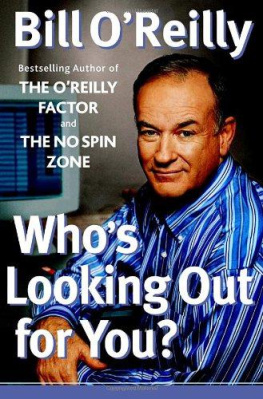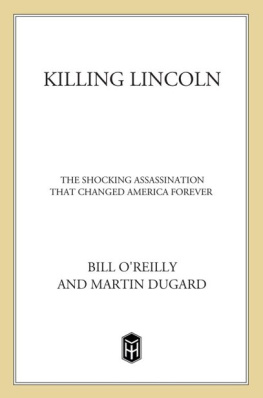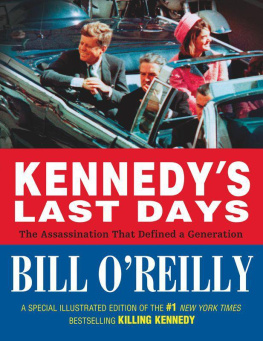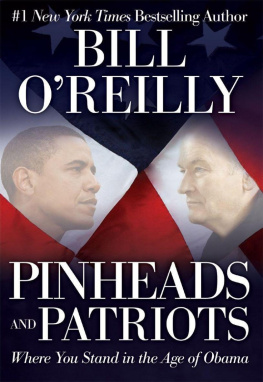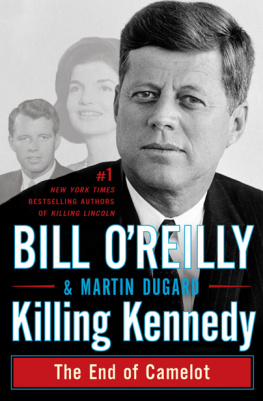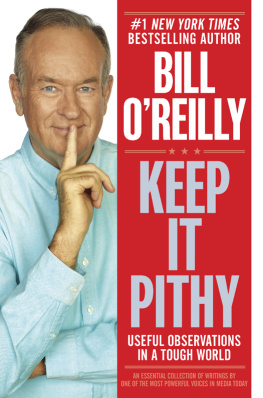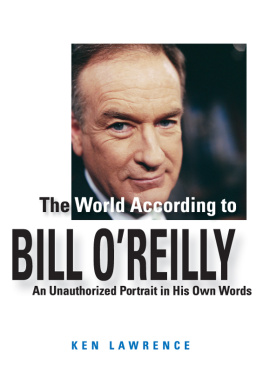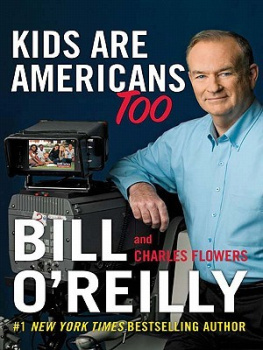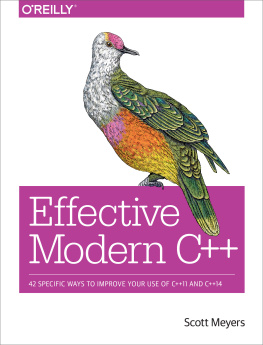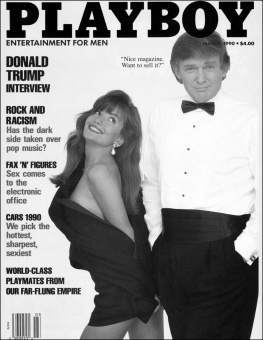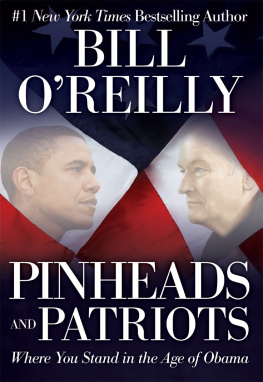BILL O'REILLY
Who's Looking Out for You?
BROADWAY BOOKS New York
Donahue's veins bulged as his face went scarlet. "What about the innocent civilians that will be killed if we attack?" he raged. "That's war. If a government allows a terrorist group to attack America, that government has to be brought down by force," I replied. "I would not target guess you could argue that they are looking out for the Afghan people. But are they looking out for you?
THE SAD TRUTH is that most high-profile media people are looking out for themselves and themselves alone. On any given day in Manhattan, you will see them dining in incredibly expensive restaurants with other powerful people. You will see them at swanky parties and black-tie charity events. You will see them at their lavish vacation homes in the Hamptons, Aspen, or Loudoun County, Virginia. You will not see them at Wal-Mart.
There are some exceptions. John Stossel and Brian Ross of ABC News often expose things that are harmful to the folks, and Peter Jennings respects reporting that benefits working Americans. I know this firsthand because I was an ABC News correspondent in the 1980s. Even though Jennings sees himself as a sophisticate, he encouraged me to find stories that impacted working Americans. Sometimes Jennings himself had to insist that such stories be slotted in on World News Tonight. As with all network news organizations, many ABC News producers held a built-in prejudice against "populist stories." Jennings fought that prejudice and helped me immensely.
Over at NBC News, Tim Russert is a guy who looks out for the folks by refusing to pander to the powerful politicians he interviews on Meet the Press. Russert has to walk a delicate line. He can't hammer these people as I sometimes do on The Factor, because NBC's parent company, General Electric, would not be comfortable with that. Nevertheless, Russert manages to raise the issues the folks need to know about and gets his points across, all the while grinning like a likable raccoon.
Mike Wallace and the 60 Minutes crew in general know who the bad guys are and, at times, use their enormous power to nail them. But the crusading days of 60 Minutes are over, and that's a shame. At its best, 60 Minutes made those in power tremble. But Wallace is eighty-five and his boss, Don Hewitt, is also in his eighties. How many more corporate battles can these guys take on? When I'm that age, I'll be in an urn someplace. (Let's hope Movers, Donahue, and Grodin don't have access to that urn....)
On the print side, the New York Times can unleash some brilliant reporters like Jeff Gerth if the spirit moves the elitist editors. Unfortunately, the Times is far more interested in promoting ideology and political correctness (remember the Jayson Blair scandal) than in exposing corruption, and we know that the now-resigned executive editor, Howell Raines, allowed his disdain for the Iraq War to shade the hard news coverage the Times provided about the situation. In the first few days of the conflict, the New York Times was loaded with negative headlines about how "fierce" the Iraqi resistance was. At the same time, Fox News was reporting that the coalition was cutting through the Iraqi forces like, with apologies to Mike Myers, butter. Subsequently, Fox was proved right and the Times wrong. More on the war coming up, but in my opinion, the New York Times booted one of the biggest stories in decades. The syndicated columnist Michelle Malkin, who writes about our failure to protect our borders, is definitely looking out for the folks, so her column is worth reading. The old-timers like Jimmy Breslin at Newsday and Pete Hamill at the New York Daily News can still light it up once in a while on behalf of the working and average American, but where are the angry,, crusading young reporters and columnists? Unfortunately, few of them exist, because the journalistic profession doesn't encourage that anymore. I guess I am one of the angriest journalists around these days. At least, that's what the ABC newsmagazine Prime Time Live put out there. When they did a segment on me, correspondent Chris Cuomo must have asked me twenty times, "Why are you so angry?" "Because every journalist should be angry," I answered. "Reporters are in a position to expose corruption and deceit in high places. But in order to do that you have to be annoyed about corruption and deceit. If you're a journalist and you're not angry about social injustice, get out. Be a barber." But Cuomo, son of the former governor of New York, seemed doubtful. He kept questioning me about my financial status, my success, my good life. How could I still be angry when I had such big success? he persisted. What can I say? Corruption, unfairness, incompetence, obsequiousness, and exploiting the folks have always made me mad. No amount of money in my pocket will douse that fire. You are either angry about social injustice or you're not. You can't teach it, you have to feel it. And that's the crux of the matter when it comes to the media looking out for you. If it's only about money, the folks will get hosed all day long by the media. And right now in America, it is almost all about money.
FINALLY, BECAUSE The Factor had become such a big hit, the Arts and Entertainment cable channel did a biography of me in January 2003. But the producers of the program still, to this day, have no idea why The O'Reilly Factor came out of nowhere to dominate the world of cable news. Throughout the piece, the A&E people kept hammering home this point: O'Reilly always has trouble with management; he always causes corporate trouble. But why? It is certainly true that I did not bow to my corporate bosses on my way up the media ladder. I also gave them their money's worth by doing good and profitable work everywhere I was hired. But my job is, and always has been, to report the truth to you. I assemble the facts, then draw sensible conclusions based on those facts. I don't care if the bad guys buy advertising on the TV station, if they are powerful people, if they are conservative or liberal or Episcopalian. If they are hurting the folks, they have a problem with me. Of course, that journalistic credo did not go down too well with some of my superiors, but I didn't care; I constantly dished it out even if they didn't like it. Finally, I got to a place, the Fox News Channel, where management understood that having that kind of entree on the menu might capture the attention of millions of Americans. And it did. The television industry, surpassing not only CNN, CNBC, and MSNBC, but most cable entertainment programming as well.
In a stunning turn of events, a Gallup Poll taken in January 2003 showed that cable television news programs had caught the nightly network news programs on ABC, CBS, and NBC as far as frequency of viewing. In fact, daily viewing of cable news jumped from 21 percent of viewers in 1998 to 41 percent in '03. Over the same period, daily network news watching fell from 56 percent to 43 percent. Since the poll has a margin of error of 3 percent, cable and network news are now effectively tied in appeal among Americans who watch news regularly. That situation is not pleasing to many at the networks, and the propaganda drum continues to beat loudly that my network, Fox News Channel, is simply catering to conservative Americans. But listen to this. The same Gallup Poll sums up Fox this way: "There is little difference in the self-reported use of cable news by partisanship. There has been a good deal of focus on what is perceived to be a conservative orientation of the Fox News Channel, but ... we are not able to distinguish any partisan differences in the use of the specific cable news channels." In my opinion, there aren't any. Millions of Americans watch Fox News and The Factor because they think it is worth their time. Period. And why do they think that? Well, a Gallup Poll taken in February 2003 asked this question: "Do you think news organizations get the facts straight, or do you think that their stories and reports are often inaccurate?" An astounding 58 percent of Americans answered that they believed the news delivered to them was often flat-out wrong. Only 39 percent were comfortable with the accuracy of the media. In June 1985 just 34 percent of Americans said the news was often inaccurate. The startling turnaround over a period of seventeen years is certainly worth noting. Since Fox News is the youngest of the major national news organizations, perhaps millions of Americans have found a place they consider more accurate. Of course, only you can decide if I am being self-aggrandizing or if I or any other media person is truly looking out for you. That is your personal decision to make. And remember: It is tough to fool the camera or newsprint. We media people say plenty, but what do we really do? Judge us on that. And say a prayer for those ink-stained wretches and on-camera troublemakers who are truly trying to right some wrongs.
Next page
